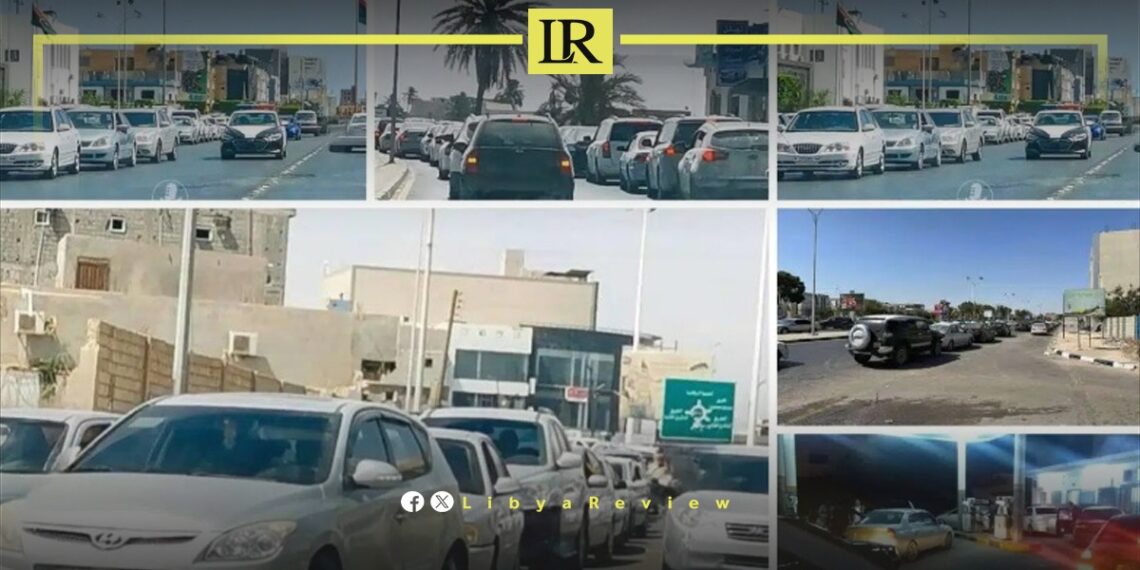Libya, a country known for its vast oil reserves, is now facing a fuel crisis of epic proportions. Despite its immense wealth in oil, Libyans are enduring long lines at gas stations, with fuel shortages bringing daily life to a grinding halt. The sight of endless queues at fuel pumps has become a symbol of a nation struggling with a crisis that defies logic.
Professor Atiya Al-Feitouri, an economist at Benghazi University, has voiced the frustration felt by millions of Libyans. “The fuel crisis in Libya is unlike anything seen anywhere else in the world,” he remarked, highlighting the absurdity of a country so rich in oil suffering from severe shortages.
Libyans are forced to wait for hours at gas stations, often with no guarantee of securing fuel. Al-Feitouri shared a personal story of his son who spent over six hours in line for a small amount of gasoline. These long waits are not just about time lost—they represent the anxiety and uncertainty that now define daily life in Libya.
The crisis extends beyond just fuel. The lack of strategic reserves and poor management have left the country vulnerable to these shortages. In Libya, where oil should be a source of stability, it has become a source of frustration and hardship.
Chaos and mismanagement have taken a toll on all aspects of life. With fuel in short supply, people cannot go to work or send their children to school. The economic losses are mounting, and the country is facing a situation worse than in some of the poorest nations in Africa. The crisis is exacerbated by widespread corruption and a lack of accountability among those in power.
Despite the grim reality, there is hope if the right measures are taken. Libya’s National Oil Corporation needs to establish strategic fuel reserves to prevent future crises. Clear, transparent economic policies and strong leadership are essential to overcoming the challenges Libya faces.
The question now is whether Libya’s leaders will take the necessary steps to address the fuel crisis and restore normalcy. The fate of the nation depends on its ability to act decisively and responsibly. As the fuel lines grow longer, the urgency for a solution becomes more critical.


